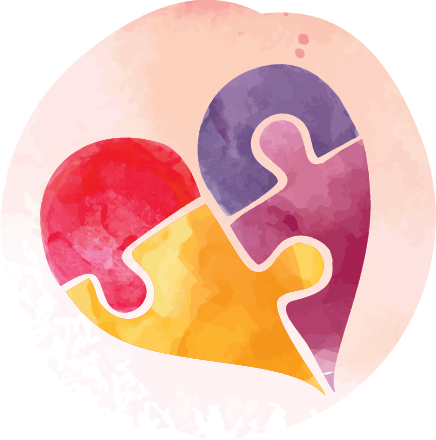Press











ABOUT Sam
SERVICES
Team Ruthless
EVENTS
GRIEFHAB™
PODCAST
RETREATS
shop
HEALING TOGETHER THROUGH THE HOLIDAYS - MAIN EVENT
HEALING TOGETHER - FOR A CAUSE: VIRTUALLY
HEALING TOGETHER - FOR A CAUSE: PILATES IN THE PARK - MICHIGAN
HEALING TOGETHER - FOR A CAUSE: VISIBLE - COLORADO
September 6-7
Jimtember Virtual Jubilee
blog
December 2nd - 8th / Metro Detroit AND VIRTUALLY
August 27th & 28th
August 30-31st
rUTHLESS IN THE ROCKIES
TEAM RUTHLESS
THE CONFIDENCE CONFERENCE
mOBILE rECOVERY dAY
Next event: September 10-23rd, Colorado
October 5-6th -
Virtual Event
September 30th, Castle Rock, Colorado
7 Groups Every week Plus Every Holiday
HEALING TOGETHER - FOR A CAUSE: Ride & ROAR - DALLAS
October 11 -12th
Stay Tuned!
FACES OF GRIEF
JOIN US
THE CONNECTION BETWEEN ADDICTION AND MENTAL HEALTH
December 19, 2018
Thanks to the ongoing efforts of medical doctors, mental health professionals, drug treatment counselors and many more people across our society, we are all moving towards a brighter future of comprehensive mental health and addiction treatment. Working with a huge number of clients from all walks of life over the years, I’ve come to realize that stigmas and prejudices are being broken down and stripped away every single day, allowing people to move forward with their lives without fear of openly discussing their mental health. While it is becoming less and less controversial to speak openly about these issues, I have found that there is still an understandable level of confusion about the direct connection that exists between mental health conditions and addiction. Some of the first questions that I get asked are, “Is addiction a mental health issue?” Or, “Does mental health cause addiction?” These are important questions that have no simple answers, at least not answers that will apply to everyone and every case.
There are certainly cases when latent mental health issues will manifest themselves as substance abuse, as well as cases when addiction and substance dependence can cause changes in brain chemistry that produce mental health conditions. The conversation is one where there is no hard and fast rule regarding which came first, the chicken or the egg. Addiction and mental health exist on a continuum, and can have a variety of causal relationships. One thing that is certain, and that we should all keep in mind, is that there is a relationship.
According to the most recent data available from the National Institute on Drug Abuse, approximately “half of people who experience a mental illness will also experience a substance use disorder at some point in their lives and vice versa.” The most interesting part of that sentence are the last two words, “vice versa.” One may come first giving way to the other, and it is perfectly possible for things to happen the other way around as well.
One important pathway that can help us understand the interplay between addiction and mental health is the connection between a lack of treatment options and self-medication. For a whole host of reasons that I have come to understand over years of working with clients, many people do not seek treatment for their mental health conditions. This includes looking for solutions to common issues such as anxiety and depression, but can also occur in people who experience more detrimental conditions such as schizophrenia and other forms of psychopathy.
Because Western society has stigmatized mental health problems for so long, and failed to put in place adequate systems of treatment and recovery, clients have turned to unhealthy solutions for a whole range of issues. This can manifest as a nicotine addiction as a way to deal with anxiety and stress, to alcohol abuse as way to cope with depression and personal loss, or of course the ongoing opioid crisis. It is not a coincidence that so many of the communities across America that have been ravaged by opioids all share common problems. These drugs have found their parasitic niche in communities that are economically depressed, politically underrepresented and largely forgotten by the metropolitan areas that dominate our culture. The problems that these areas face are real, but many of the people who live in them have been presented with opioids as a solution to a vast set of complex problems that dominate their lives. Had many of these people been in situations where they felt a sense of community, and a real connection to the positive development of their environment, then opioids suddenly become less appealing. A great many people will enter opioid addiction without serious mental health problems, approaching the drugs as a solution to environmental issues, only to come out the other side with changes in their brain chemistry that can manifest as mental health problems later.
The lesson to be learned here is what lies at the essence of mental health and addiction—every narrative is a little bit different, but many of the story beats are the same. Every case that I take comes with it’s own secrets, but there are no surprises. The good news is that this allows us to empathize with the problems of others, even though I may not share the exact same circumstances surrounding mental health and addiction.
Leave a Reply Cancel reply
120 E. Front St. Loft 2 Traverse City MI 49684 &
77 Monroe Center St Ste 600 Grand Rapids MI 49503
phone : +1 (231)707-0707


Donate TO GRIEFHAB™
Donate today to help make our events and services free for everyone.
You can also donate directly to support a specific client in need.
four
three
info & Investment
two
THE FOUNDER
one
fIVE
GRAB A COPY OF MY
BOOKS & MERCHANDISE
four
three
info & Investment
two
THE FOUNDER
one


fIVE
GRAB A COPY OF MY
BOOKS & MERCHANDISE










HEALING TOGETHER EVENT
EVENTS
four
three
info & Investment
two
THE FOUNDER
one
fIVE
GRAB A COPY OF MY
BOOKS & MERCHANDISE
four
three
info & Investment
two
THE FOUNDER
one





fIVE
GRAB A COPY OF MY
BOOKS & MERCHANDISE










FACEBOOK FAMILY
GRIEFHAB™ SERVICES
FACES OF GRIEF
Our Press Features
THE BE RUTHLESS SHOW
two
three
Recent Articles
one





Coming in September! Stay Tuned.
December 2nd -8th / Metro Detroit AND VIRTUALLY
August 25th
August 30-31st
October 11 -12th
Stay Tuned!










four
three
info & Investment
two
THE FOUNDER
one





fIVE
GRAB A COPY OF MY
BOOKS & MERCHANDISE
four
three
info & Investment
two
THE FOUNDER
one





fIVE
GRAB A COPY OF MY
BOOKS & MERCHANDISE









